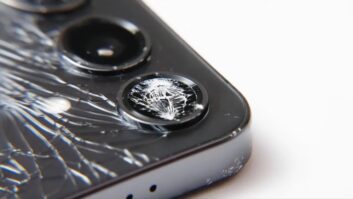
Samsung said four separate and exhaustive investigations into the cause of fires in its ill-fated Galaxy Note7 point to the phablet’s outsourced battery, rather than the handset itself.
Still, the manufacturer took responsibility for the specifications it provided its battery suppliers, and for its failure to “identify and verify the issues arising out of battery design and manufacturing process prior to the launch.”
At a press conference today in Seoul, Korea, DJ Koh, president of Samsung Electronics’ mobile communications business, said the months-long investigations by Samsung and independent investigators UL, Exponent and TUV Rheinland examined the phone’s hardware, software and related processes, including assembly, quality assurance testing and logistics.
Samsung’s investigation alone involved tests of more than 200,000 phones and over 30,000 batteries by some 700 in-house technicians.
The findings — which cited issues with the batteries’ negative electrodes, see infographic below — along with the overheating incidents themselves, have led to “a renewed commitment to safety,” Samsung said. This includes a multi-layer safety measures protocol at the product planning stage; an eight-point battery safety check; and other corrective actions.
The company has also formed a battery advisory group comprised of researchers and academicians from Cambridge, Stanford and UC Berkeley to ensure it “maintains a clear and objective perspective on battery safety and innovation.”
“Today, more than ever, we are committed to earning the trust of our customers through innovation that redefines what is possible in safety, and as a gateway to unlimited possibilities and incredible new experiences,” Koh said.
The ill-fated phone was released to early praise last summer, but was recalled soon thereafter as reports of burns and fires began surfacing. The Note7 was permanently sacked after a second wave of replacement phablets exhibited the same overheating issues.
Despite power-off warnings at airports and train stations, and offers to exchange the phones or refund customers, a small percentage of owners have refused to relinquish their Note7s, prompting carriers to issue over-the-air (OTA) software updates to prevent the phones from charging, while Verizon has resorted to rerouting outgoing calls to its service desks.
Samsung took an estimated $1 billion hit from the worldwide, 2.5 million-unit recall, although the impact on its brand and its mobile business is expected to be minimal for the long term, researchers said.

Source: Samsung Electronics













